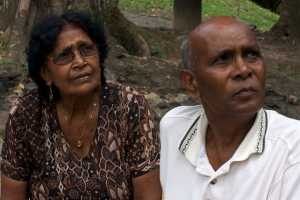
09 Jul Parents and Siblings of Supercentenarians Also Live Extended Lives
MedicalResearch.com Interview with:
 Stacy L. Andersen, PhD
Stacy L. Andersen, PhD
Assistant Professor of Medicine
Project Manager
New England Centenarian Study
Long Life Family Study
Boston University School of Medicine
Boston Medical Center
Boston, MA 02118
MedicalResearch.com: What is the background for this study?
Response: Exceptional longevity appears to run in families. Previous studies have found that people who have siblings who live into their 90s or who reach 100 years of age have a greater chance themselves of living longer than the general population. Yet it is supercentenarians, those who reach the age of 110 years, who represent the true extreme of the human lifespan. We wanted to determine whether the parents and siblings of supercentenarians were more likely to reach very old ages than family members of younger centenarians.
We collected family tree information for 29 participants of the New England Centenarian Study aged 110-119 years. Proof of age documents and familial reconstruction methods were used to validate ages and dates of birth and death of the supercentenarian as well as his or her parents and siblings. Mean age at death was compared to birth year and sex-specific US and Swedish cohort life table estimates conditional on survival to age 20 for siblings to omit deaths due to nonheritable factors such as infectious disease or accidents and survival to age 50 (the approximate age at which women are no longer able to reproduce) for parents.
MedicalResearch.com: What are the main findings?
Response: Brothers of supercentenarians lived 12-14 years longer than the general population of people born in the same year. They also had a 4.3 times greater probability of reaching the age of 90 years. Sisters lived 8-10 years longer than their birth cohort and had a 2.9 times greater probability of reaching 90 years of age.
Parents of supercentenarians also had a survival advantage. Fathers lived 3-4 years longer than their peers and tended to be more likely to reach the age of 90 years although this was not statistically significant. Mothers had an even greater advantage living, on average, 7-8 years longer than their birth cohort with a 5.8 times greater likelihood of reaching the age of 90 years.
MedicalResearch.com: What should readers take away from your report?
Response: This study provides further evidence that longevity runs in families. People who have a sibling who has reached extreme old ages tend to live many years beyond average life expectancy. Furthermore, supercentenarians tend to have had parents who were more likely to have reached very old ages than others of their generation.
MedicalResearch.com: What recommendations do you have for future research as a result of this work?
Response: Ongoing centenarian studies such as The New England Centenarian Study and the New England Supercentenarian Study are investigating the genetic, environmental, and behavioral factors that are associated with ability to maintain good health and function longer in life in order to reach extreme old ages. Studying families with multiple members who have reached very old ages may enrich the sample with familial factors related to longevity.
MedicalResearch.com: Is there anything else you would like to add?
Response: The analysis was limited to studying the probability of siblings and parents for reaching age 90 due to the limited number of supercentenarian pedigrees available. A larger sample size would allow for the analysis of survival advantage of family members to even more exceptional ages such as 100 years or older.
Citation:
[wysija_form id=”3″]
The information on MedicalResearch.com is provided for educational purposes only, and is in no way intended to diagnose, cure, or treat any medical or other condition. Always seek the advice of your physician or other qualified health and ask your doctor any questions you may have regarding a medical condition. In addition to all other limitations and disclaimers in this agreement, service provider and its third party providers disclaim any liability or loss in connection with the content provided on this website.
Last Updated on July 9, 2018 by Marie Benz MD FAAD
